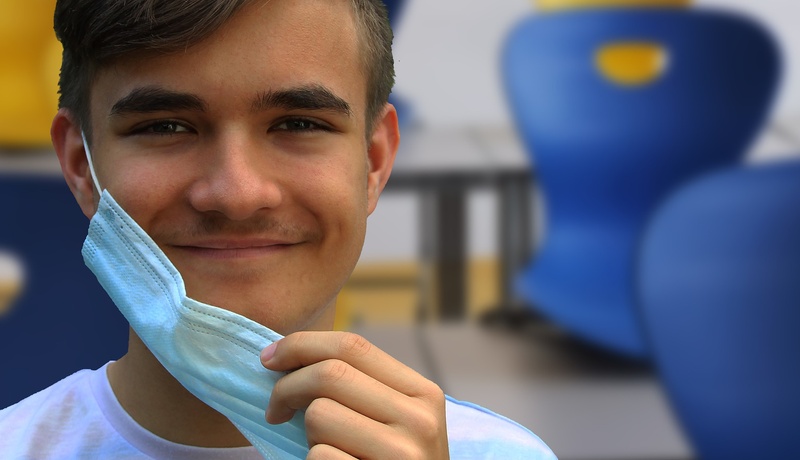Starting Back to School in 2020

Uncertainty is uncomfortable.
In addition to the day-to-day uncertainty we all deal with in our lives, COVID-19 has certainly added many levels of confusion - what is considered safe?; what is right for my family?; what will life look like in a couple of weeks?; etc…
Each of us has different tolerance levels for dealing with the unknown, and as parents, we all wish there was a handbook to help us navigate these challenges. While I haven’t discovered that handbook yet, I do know that decades of research on resilience tells us that learning to cope with the unknown supports life-long resilience in the face of adversity - which is what we all wish for our children.
September brings added layers of uncertainty to our lives with the launch of a new school year amidst a pandemic. What is right for each family depends on numerous factors, including the presence of pre-existing health conditions. However, it is important to remember that there are some significant benefits to having students return to the school building, including:
- daily routines are helpful for promoting mental health
- in-person teaching is typically more effective for students with Learning Disabilities
- leaving the home each day is a very valuable step in challenging anxiety, building coping mechanisms, and developing resilience in the face of uncertainty.
- interacting with peers and staff is valuable for fulfilling a sense of connection and supporting happiness
As schools are gearing up for a new school year and putting together safety protocols, many families are considering how to best support their children and adolescents to return to their school buildings for the first time since March. Here are some things to consider:
Set-up sleep routines now. Many sleep schedules have changed over the summer, and we want to set students up for success by gradually shifting their schedules back to school hours over the next few weeks.
Return to prescribed medication. If your child/adolescent has ADHD medication that they were not consistently taking medication over the summer, now is the time to begin again, especially if they have initial side effects (such as low appetite in the first few days).
Increase discomfort. If your child/adolescent has been spending a lot more time at home than usual, make sure they are venturing out into the larger world and getting used to the ‘new normal’. This can even be trips to the mall, so that they become more comfortable with the world of masks and hand sanitizer.
Be prepared. Engage them in the usual process of choosing school clothes, gathering supplies, and planning lunches. And add the ‘new normal’ supplies - hand sanitizer and a mask for the first day of school.
Reflect on academic strategies. Engage them in a discussion about what conditions help them learn and be successful in school. Sit down together and read the recommendations at the end of their last psycho-educational assessment. Try Back-to-School Worksheet to Plan for a Better Year and Self-Awareness Worksheets for Kids.
Talk about their thoughts/feelings, but do so carefully. We want our children/adolescents to share their thoughts and concerns about returning to school, and acknowledge the discomfort of uncertainty. However, we also need to be cautious of parent behaviours that actually support anxiety: providing certainty about outcomes; constant reassurance; overprotecting; requiring others to accommodate their anxiety; and modelling your own anxious behaviour.
Communicate your confidence in their abilities to cope. Remind them of times that they did not think they were up to a challenge, but ultimately prevailed.
Practice self-regulation skills together. Anxiety is contagious, so if we are mindful about our parenting, the whole family benefits: Practice Mindful Parenting
Reconnect with school peers. Even if it is just via social media, ensure that your child makes some connections which will make returning to school more comfortable.
And … as we all go into the Fall in unanticipated ways it can be draining, it will be important that we put extra emphasis on kindness; empathy; connection with others; having fun together; and self-care, as we all adjust to school in a new way.
